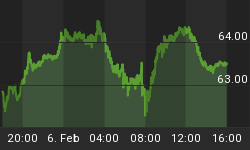As earnings season starts off, all eyes are on major U.S. banks who have emerged from the pandemic into a brand new reality that has Russia’s war on Ukraine as its centerpiece, flanked by sanctions, withdrawals, inflation and talk of recession.
U.S. banks were among the first Western banks to exit the Russia market following the invasion in late February.
Even though U.S. banks started winding down their presence in Russia after Vladimir Putin annexed Crimea in 2014, according to the Bank for International Settlements Russian entities owe U.S. banks $14.7 billion.
Chances are, they will have to write off most of that.
American banks’ exposure to Russia represents less than 1% of the almost $17 trillion banking assets and, unlike Western European banks, which will reel if this war further intensifies, they will not be as negatively impacted. However, last week, Refinitiv reported that the largest six U.S. banks were expected to show a sharp decline in first quarter earnings from a year ago and that profit would dip by more than one-third.
Citigroup has the largest disclosed exposure among U.S. banks in Russia. At the beginning of the invasion, the bank revealed that its exposure in the country amounted to nearly $10 billion through loans, government debt and other assets.
Goldman Sachs Group Inc reported nearly $700 million in exposure to Russia, while the
Bank of New York Mellon Corp said it had less than $100 million of Russia exposure.
Other major banks, such as JPMorgan Chase, Bank of America and Wells Fargo, did not list Russia in the top 20 countries with high exposure
Still, JPMorgan Chase first-quarter profit fell sharply from a year earlier, mostly driven by increased costs for bad loans and market upheaval caused by the Ukraine war.
The bank reported that its net income plunged by 42% to $8.3 billion in this year’s first quarter compared to same period last year, while revenues fell 5% to $30.7 billion
Although the bank said it was not worried about its direct exposure to Russia, JPMorgan Chase CEO Jamie Dimon wrote in his annual letter to shareholders that the bank could lose about $1billion due to the ongoing conflict.
Goldman Sachs revenues plunged 27% to $12.9 billion, and net income plunged by 42% to $3.9 billion in the first quarter. The bank's stock is trading 24.5% lower from their 52-week high in early November
Bank of America gained over 3.4% Monday, after reporting roughly $700 million in total in exposure to Russia, and being the only major bank to announce an increase in revenue.
In total, BofA posted revenue increase 2% to $23.2 billion, driven by a 13% increase in net interest income. However, net income fell 12% compared with a year ago.
Citigroup stock has gained around 3% over the past five days.
That is despite a 46% drop in its Q1 profit, due to higher expenses and potential losses from its exposure to Russia. The bank's profit fell to $4.31 billion, or $2.02 per share, compared to last year’s profit of $7.94 billion, or $3.62 per share. The bank said in its earnings report that it has set aside $1.9 billion in reserves related to the invasion.
Banks are expected to benefit from the tailwinds of rising interest rates coupled with a revival of loan growth, but this could be tempered with inflation and fears of recession.
















